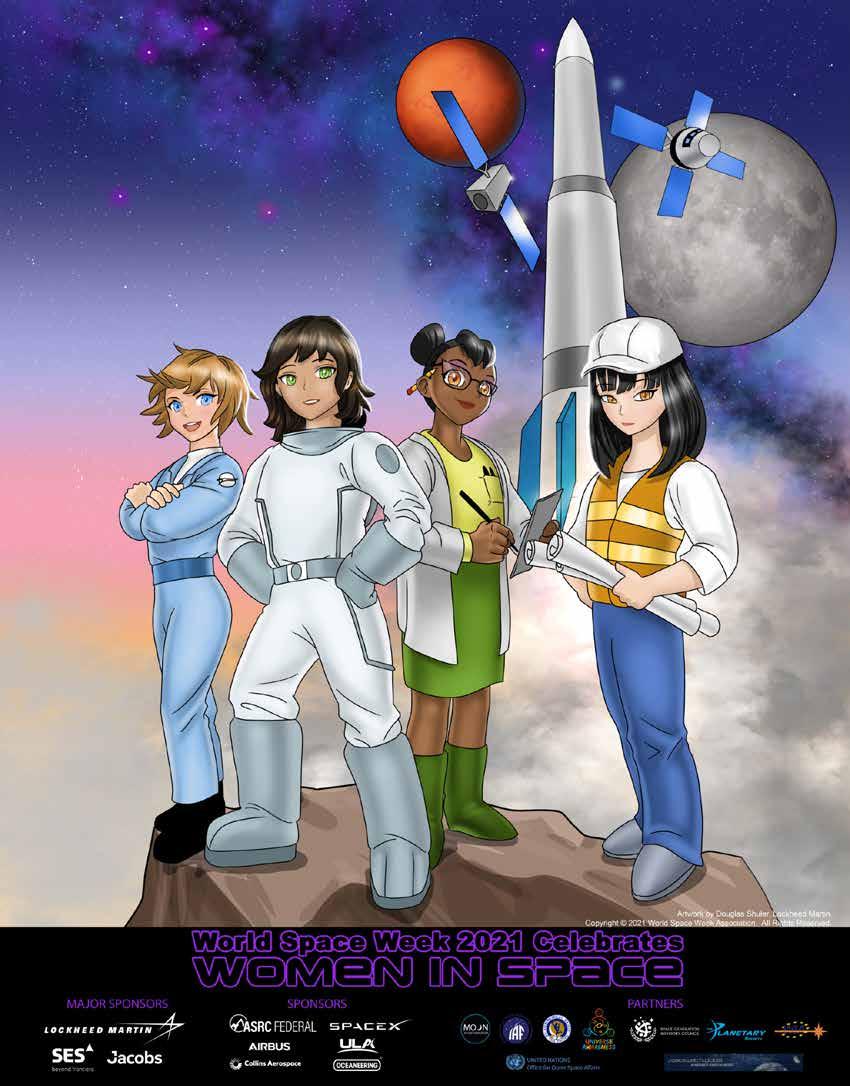
2 minute read
SANSA VISIT

WHAT IS SPACE Visiting the regional Space Weather Warning Centre in Hermanus.
Advertisement
WEATHER? By: Nadine Sims
Have you ever sat and wondered what the weather must be like out there in Space? Does it rain? Get windy? Hot? Well, much like Earth, the weather exists out there in Space too and it can get quite turbulent out there.
In space, weather events have many names but generally they are called "solar events". The word "solar" is derived from the latin word "sol" which means sun. Solar storms can cause quite a lot of disruptions that could be dangerous. That is why there are Space Weather Warning Centres, to help predict and prepare for catastrophic events.
The South African National Space Agency (SANSA) Space Weather Warning Centre in Hermanus is decked out with a huge wall of TV monitors that have various images of the sun and this is where the experts are able to look at the Sun and supply warnings, alerts and forecasts of any space weather events.
This centre in Hermanus is one out of 17 international space weather warning centres and it is the only one of its kind in Africa. Monitoring space weather events is not only important to scientists but it should be important for everyone that uses modern technology, as it has the potential to disrupt and impact systems such as satellites, power grids and radio communication. This can also have a negative effect on the aviation industry which requires its GPS and navigation systems to run smoothly on all aircrafts, especially during bad weather.
A solar superstorm also has the potential to have bad effects on communication systems like mobile phones and could have severe effects on the world economy and society at large. Therefore, it is vital to monitor the sun and its daily activities and hopefully pre-empt any space weather events.
Space Weather Event example:
An example of a big space weather event that disrupted everyday life is the Carrington Event of 1859 where the digital telegraph (some say that it was the internet of its day) was affected by the largest geomagnetic storm ever recorded.
If something similar were to happen today, it would cripple society and potentially affect GPS systems, internet-based technology, power or electricity and transport. Therefore, it is important to be able to forecast any solar weather events.
WORLD SPACE WEEK!
World Space Week (WSW) kicked off on 4 October this year with thousands of events globally. It went on until the 10 October. This year’s theme was “Women in Space” which sought to celebrate women who significantly contributed to the space sector around the world.
There were quite a number of key events driven by some aerospace companies, such as:
Lockheed Martin and Airbus
The UN Office for Outer Space Affairs
Space agencies in the UK, Kenya, Israel, Philippines and Pakistan as well as the Planetary Society, Space Foundation, Unistellar, SETI Institute and other space organizations.
Schools globally, science museums and planetariums, astronomy clubs and others also celebrated World Space Week 2021.
Were you aware of World Space Week? Did you participate in any programmes this year? We would love to feature some of your photos and activities in our next edition.
Please email your pictures and stories of how you celebrated this day to the editor: unathi@sciencestars.co.za











